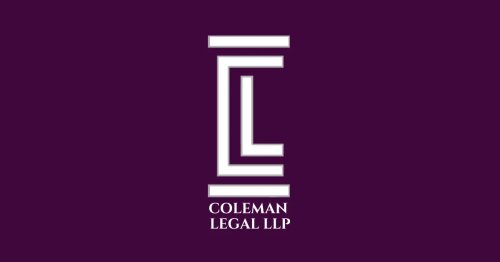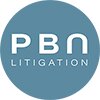Best Education Law Lawyers in Ireland
Share your needs with us, get contacted by law firms.
Free. Takes 2 min.
Or refine your search by selecting a city:
List of the best lawyers in Ireland
About Education Law in Ireland
Education Law in Ireland governs the policies, regulations, and statutes that structure the educational system, covering institutions from early childhood education through to higher education. This body of law oversees the rights and responsibilities of all parties involved in education, including students, parents, educators, and school boards. Key areas include access to education, special educational needs, school governance, disciplinary procedures, and the rights of students and teachers. The Education Act 1998, the Equal Status Act 2000, and the Education for Persons with Special Educational Needs Act 2004 (EPSEN) are central to this legal framework, ensuring standards and equality in education.
Why You May Need a Lawyer
There are various situations in which you might require legal assistance in Education Law. Parents might seek legal advice if there are disputes regarding admissions, expulsions, or discrimination against a student with special needs. Educators may need legal guidance on their rights and obligations or in instances of alleged misconduct. School boards and administrators can require assistance with compliance issues related to policy-making and governance. A lawyer specializing in Education Law can provide clarity on legal entitlements, negotiate solutions, and, if necessary, represent parties in court or mediation.
Local Laws Overview
In Ireland, Education Law is primarily structured around several core pieces of legislation. The Education Act 1998 is foundational, establishing the framework for the rights of children to education and the responsibilities of the educational institutions. The Equal Status Act 2000 prohibits discrimination in education on numerous grounds, including gender, disability, and ethnicity. The Education for Persons with Special Educational Needs Act 2004 focuses specifically on the educational rights of students with special educational needs, setting out procedures and supports for their education. Additionally, child protection guidelines and other policies like anti-bullying laws are influential in shaping the legal landscape of education.
Frequently Asked Questions
What is Education Law?
Education Law encompasses legislation, policies, and guidelines that govern the educational system and its stakeholders, including students, teachers, and administrative entities.
How does a student dispute an unfair exclusion from school?
A student, typically with the help of a parent or guardian, can appeal the school's decision through the school's board of management, and if necessary, take the appeal to the Department of Education under Section 29 of the Education Act 1998.
What legal rights do students with special needs have in Ireland?
The Education for Persons with Special Educational Needs Act 2004 provides students with the right to appropriate education and the necessary resources to fulfill their educational potential.
What should I do if I believe my child is being discriminated against at school?
Parents can lodge a complaint with the school. If unresolved, they may bring the matter to the Office of the Ombudsman for Children or the Workplace Relations Commission for discrimination issues.
Who is responsible for addressing bullying in schools?
Schools have a legal obligation to create anti-bullying policies and strategies as per the Department of Education guidelines to prevent and address bullying behavior among students.
What is the role of the National Council for Special Education (NCSE)?
The NCSE supports the delivery of educational services to students with special needs and advises on policy and provision, ensuring resources and supports are effectively implemented.
How are education policies developed in Ireland?
Education policies are developed by the Department of Education, often in consultation with stakeholders such as teachers’ unions, school representatives, and non-governmental organizations.
What rights do teachers have concerning employment disputes?
Teachers have rights under general employment laws, and specific issues are usually addressed by the Teaching Council or through collective bargaining agreements with unions like the Irish National Teachers’ Organisation (INTO).
How can schools ensure compliance with GDPR when handling student records?
Schools must follow data protection regulations set out by the Data Protection Commission, ensuring personal data is processed lawfully under GDPR guidelines.
What is an Individual Education Plan (IEP) in the context of Irish education?
An IEP is a documented plan developed for students with special educational needs that outlines specific educational goals, accommodations, and strategies to support the student’s learning.
Additional Resources
The following resources may be useful for anyone seeking advice or information on Education Law in Ireland:
- The Department of Education provides policy documents and guidance on educational matters.
- The NCSE offers support and resources for special education needs.
- The Office of the Ombudsman for Children can help resolve issues related to children's rights in education.
- The Education Welfare Service focuses on school attendance and related welfare concerns.
- The Irish Human Rights and Equality Commission tackles discrimination in education.
Next Steps
If you require legal assistance in Education Law, consider the following steps:
- Document all relevant information, including communications and incidents pertaining to your case.
- Contact a solicitor who specializes in Education Law to discuss your situation and receive tailored advice.
- Consider alternative resolution methods, such as mediation, which may resolve disputes more amicably and quickly.
- Follow up with the recommended course of action provided by your legal representative, whether it leads to resolution or proceeding with legal action.
Seeking professional legal advice early can clarify options, protect your rights, and promote efficient resolutions.
Lawzana helps you find the best lawyers and law firms in Ireland through a curated and pre-screened list of qualified legal professionals. Our platform offers rankings and detailed profiles of attorneys and law firms, allowing you to compare based on practice areas, including Education Law, experience, and client feedback.
Each profile includes a description of the firm's areas of practice, client reviews, team members and partners, year of establishment, spoken languages, office locations, contact information, social media presence, and any published articles or resources. Most firms on our platform speak English and are experienced in both local and international legal matters.
Get a quote from top-rated law firms in Ireland — quickly, securely, and without unnecessary hassle.
Disclaimer:
The information provided on this page is for general informational purposes only and does not constitute legal advice. While we strive to ensure the accuracy and relevance of the content, legal information may change over time, and interpretations of the law can vary. You should always consult with a qualified legal professional for advice specific to your situation.
We disclaim all liability for actions taken or not taken based on the content of this page. If you believe any information is incorrect or outdated, please contact us, and we will review and update it where appropriate.
Browse education law law firms by city in Ireland
Refine your search by selecting a city.














